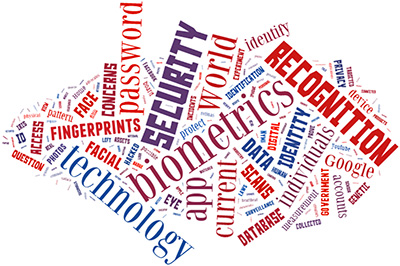From Papyrus to Cyberspace
From Papyrus to Cyberspace- recorded not so long ago chronologically but light years ago technologically speaking, discusses issues of technology that have become more and more relevant in the preceding years. James O’Donnell compares it to the wild, wild electronic west, where academics and pirots alike conquer a new universe of information. This new universe of information has its advantages and disadvantages both socially and academically.
On a social level, we must pay for the consequences of using technology as our children become exposed to things like pornography at a young age, and their minds and emotions become tainted with images of violence as the norm. Technology has a psychological impact on all of us where it has the ability to change our emotions and persona. We frequently remove ourselves from reality and go to fantasy as we reach for our phones and log on to Facebook, Twitter, and AR games to name a few.
James Engell warns us to approach technology with cautions optimism. He point out that Papyrus has lasted thousands of years, while the life of current technology remains unknown. The speed at which technology is changing is so drastic, he notes that Universities still maintain card catalogues alongside the electronic catalogues, and printed manuscripts beside the electronic journals. He cautions that the next frontier is unclear, and we don’t know what lies ahead, so we must therefore approach it with caution.
Academically, students have access to information from literally thousands of journal publications from around the world, which strengthens and broadens the idea of global unity. New forms of democratization emerge, as people in far flung regions suddenly find themselves having access to wonderful places through the internet. The class division which was built on intellectual knowledge is falling away, as students frequently have more technological knowledge than their teachers. Thus the traditional role of educator is inverted and the theory of constructivism and constructionism take root in face to face and online classrooms.
On a personal level, I wonder if technology has in fact created a new class of intellectuals. Although we may all conceivably have access, and everyone and anyone can author information and create; their appears to be a distinct loss in quality of information. The vast majority of the internet is mindless drivel, and social media is just a forum for lonely people who feel the need broadcast the most insignificant of things such as the last meal they ate, or what they are thinking- “I share therefore I am”. (sherry Turkle http://www.ted.com/talks/sherry_turkle_alone_together?quote=1460#t-908045). Does this mean that even though more people have access, the quality is so poor that it’s creating a different kind of illiteracy? By losing the art of reading and hand- writing and replacing it with texts are we condemning our children?
Please don’t misunderstand me, as I too am one of the millions that broadcast mindless drivel. Last week, I shamelessly sat in the front row of a small community theater and video- taped a traditional Bharatanatyam dancer, just so I could post it on Facebook. At some point during this performance I asked myself which I was enjoying more; the live show, or the fact that I could share what I was seeing and incite envy amongst my friends? Then I looked next to me at my daughter and realized with disgust that she was watching this LIVE show through the screen of my camera!
Feeling nothing but shame, I turned off the camera and proceeded to watch the rest of the show “offline”. There is a certain paradox of despising the very thing we reach out for, because on some level, the new intellectual elite have come to recognize that rather than controlling technology, we have given it permission to control us.
Source:
Cambridge Forum radio broadcast: From Papyrus to Cyberspace, 1999 with James O’Donnell and James Engalls
Turkle, Sherry. (2012, February). Connected but alone?[Videofile]. Retrieved from http://www.ted.com/talks/sherry_turkle_alone_together?quote=1460#t-908045


“On a personal level, I wonder if technology has in fact created a new class of intellectuals.”
What a great question. Some people think that technology is somehow giving us the opportunity to create a new kind of scholarship, truly interdisciplinary. You might want to take a quick look at this article, I found it really interesting the first time I read it.
Hi Ernesto,
Thanks for sending me that. It is so interesting to think about the effect that knowledge access is having on us in terms of generalization and specialization and the weaving together of different disciplines. I guess this is another skill to add to the bank.
I really appreciate your thoughts on the way Facebook and social media is being used in society today. I can truly see how the issue of Facebook can be a conflict of message vs. medium. Granted, I too look on Facebook and see 80% “mindless drivel.” That is a rough estimation, it could easily be more. However, there have been many instances where social media has created revolutionary change. Currently I am living in the Middle East and I was very close to the countries that toppled during the Arab Spring. Many of these revolutions can be attributed to protesters organizing themselves through Facebook. In fact the late Tunisian dictator Ben Ali made the grievous error in assuming Facebook was used simply by young people looking to gallivant online. These viewpoints were incorrect as the world witnessed the toppling of several dictators in the region. My question is if we educate younger people that social media can be used for more constructive purposes would we see a more positive outlook on mediums such as Facebook and thus a more intellectual use of it?